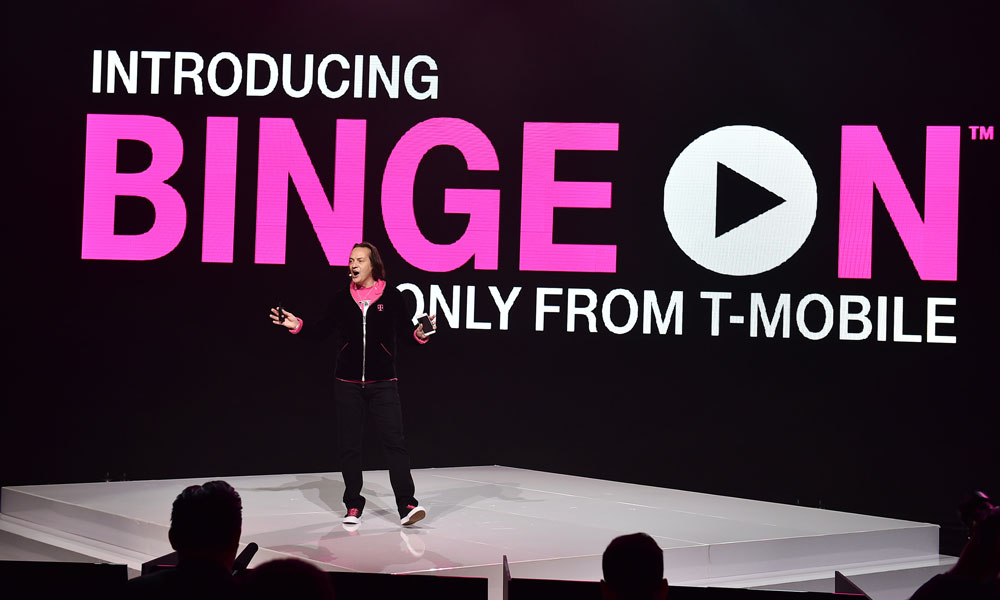
CTIA Makes Case for Controversial “Zero-Rating” Practice
This week, the wireless group CTIA released a report that argued in favor of the economic benefits of zero-rating, or allowing access to certain websites without affecting a user's data cap. The association's stance, however, runs counter to a number of advocacy groups, which argue that zero-rating allows mobile providers to choose winners and losers.
The online sphere is full of obscure jargon, but “zero-rating” may take the cake.
But the term is nonetheless important for online users to understand, especially if they’re concerned with net neutrality.
This week, the mobile trade group CTIA made a fresh argument in favor of zero-rating, which allows mobile users to take advantage of specific offerings (say, Pokemon Go or YouTube) without those services counting against their monthly data-caps.
The association released a report by a Federal Communications Commission’s former chief economist [PDF], William P. Rogerson, on the benefits and downsides of the approach. To put it simply, the approach makes it possible for consumers with limited data plans to receive useful services without affecting their data caps.
T-Mobile, in particular, has had breakout success with its zero-rating strategy, with millions of consumers taking advantage of its Binge On option, which allows customers to watch lower-quality streams of dozens of popular video services without negative effects on their data caps.
That success could lead competitors to double down on the approach.
“It seems likely that significant new developments in free data services will occur over the next few years so long as the FCC does not take measures that restrict or prohibit such innovation from taking place,” Rogerson wrote in his report.
Not Everyone’s a Fan
Considering the success of Binge On, it seems like zero-rating might be good for at least some consumers. However, the approach has many critics, with the Electronic Frontier Foundation (EFF) high on the list.
The organization got into a high-profile scuffle with T-Mobile earlier this year when it published results of a test that claims the mobile provider throttles all video streams for its customers when Binge On is enabled.
Additionally, the organization is concerned that zero-rating could encourage user bias in favor of specific services—especially commercial sites at the expense of noncommercial platforms.
“Zero-rating funnels internet users to the content and services that are zero-rated at the expense of alternatives,” the organization wrote on its Deeplinks blog in February. “Even schemes that purport to be open to widespread participation, in fact, make choices about who may join and how to allocate resources to enable different services to join the program.”
EFF joined the Open Technology Institute and a number of advocacy groups in a March letter to FCC Chairman Tom Wheeler that argued zero-rating could seriously hurt the open internet.
“As currently offered, these plans enable ISPs to pick winners and losers online or create new tolls for websites and applications,” the groups wrote in the joint letter, adding that current zero-rating uses on the market “violate net neutrality in specific ways.”
Keeping Data Within Reach?
But, even as critics persist, CTIA isn’t alone in supporting the zero-rating approach. The Wikimedia Foundation, for example, uses zero-rating in some markets to make its online offerings available for free to people on low-cost mobile plans.
For its part, CTIA argues that the FCC should allow zero-rating by mobile providers because it makes mobile plans cheaper for the majority of users.
“Let’s be clear: If regulators listen to those urging a ban of free data services, the government would be engaging in rate regulation, a point Rogerson makes plain,” the association’s Kevin Ryan writes. “Rate regulation could increase consumer costs, reduce choice, and may ultimately force some consumers to drop their only broadband connection.”
John Legere, the CEO of T-Mobile, announced the company's "Binge On" promotion at an event in November 2015. (T-Mobile press photo)






Comments